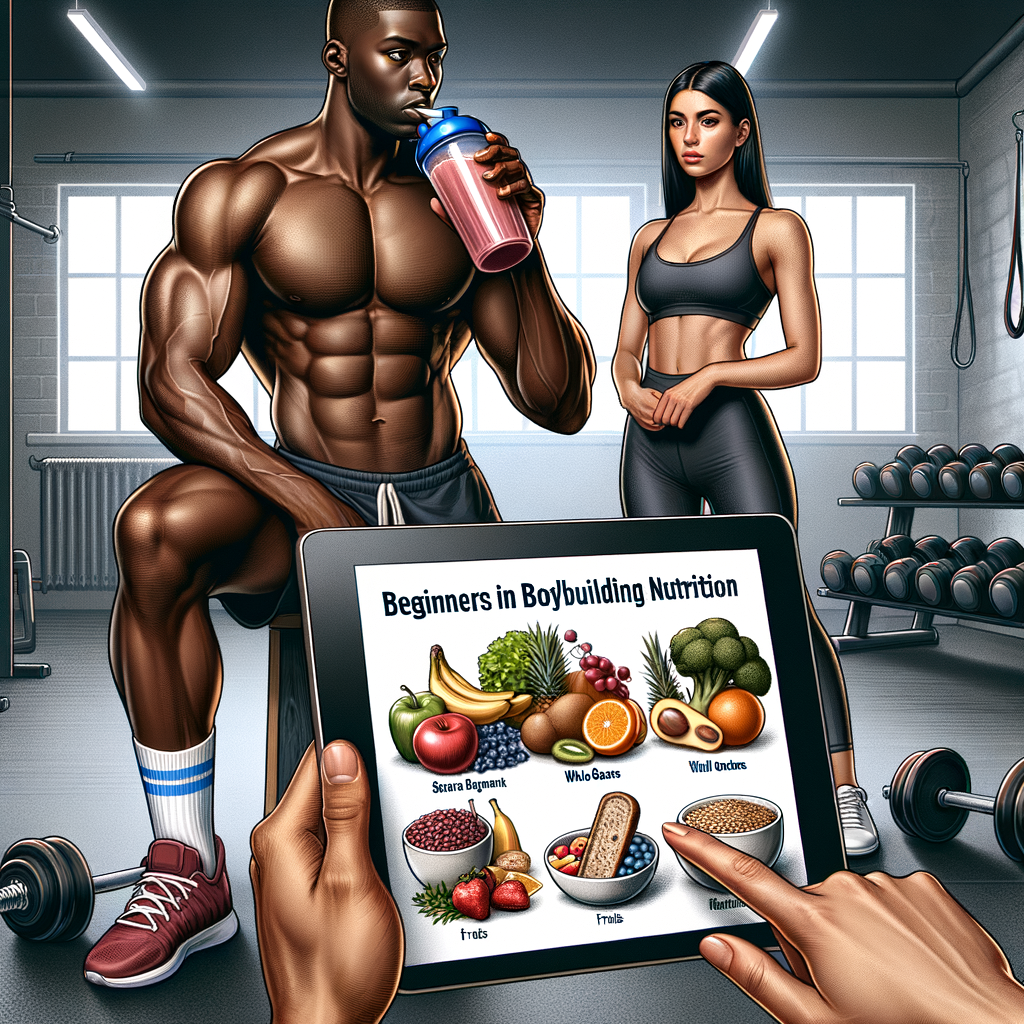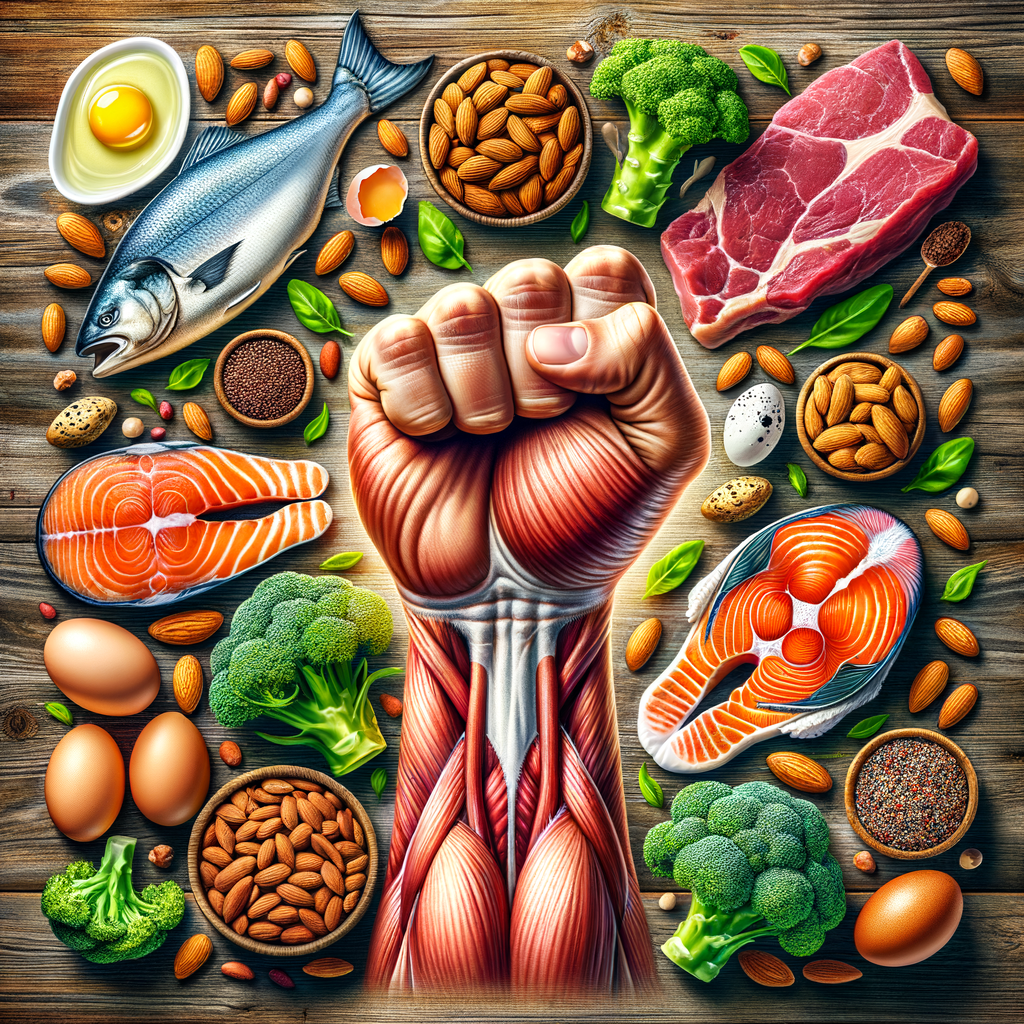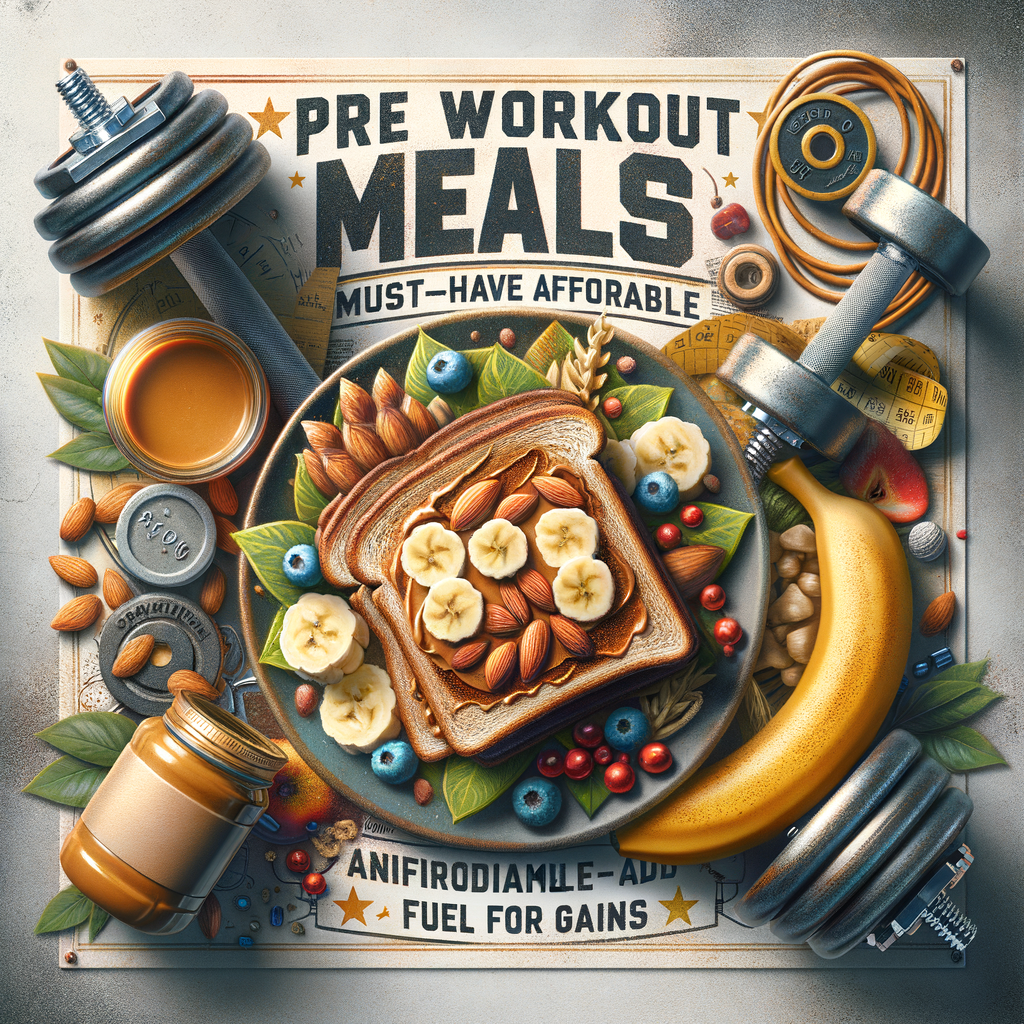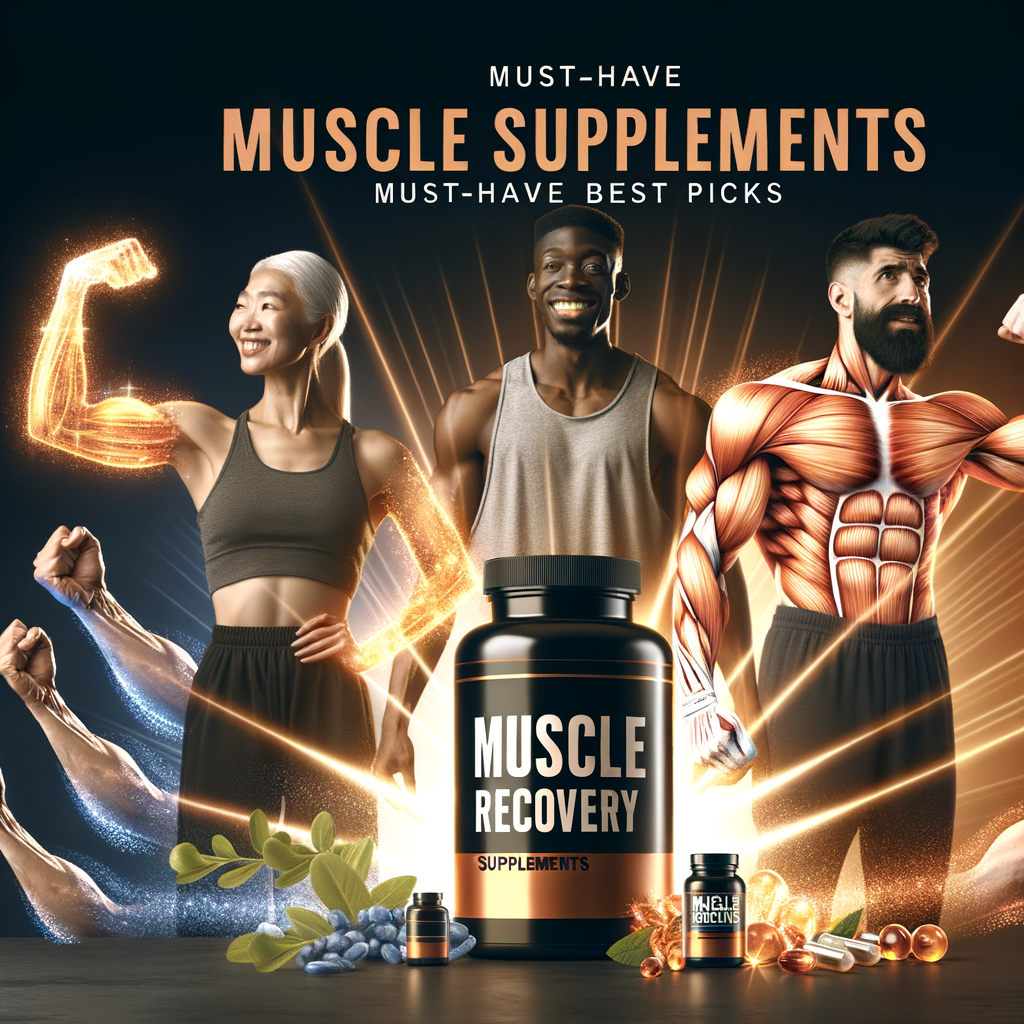- Understanding Bodybuilding Nutrition
- The Basics of Macronutrients
- Proteins: The Building Blocks of Muscle
- Carbohydrates: Your Energy Source
- Fats: Essential for Hormone Production
- Calculating Your Macros
- Sample Macro Breakdown for a 2,500-Calorie Diet
- Meal Timing Matters
- Pre-Workout Nutrition
- Post-Workout Nutrition
- Hydration: The Unsung Hero
- How Much Water Do You Need?
- Signs of Dehydration
- Supplements: Do You Need Them?
- Common Supplements for Beginners
- Meal Prep: A Beginner’s Best Friend
- Planning Your Meals
- Storing Your Meals
- Balancing Your Diet
- Importance of Micronutrients
- Tracking Your Progress
- Signs You're Making Progress
- FAQs About Bodybuilding Nutrition
- 1. How much protein do I need daily?
- 2. Can I gain muscle without supplements?
- 3. Should I avoid carbs completely?
- 4. How often should I eat?
- 5. What are the best snacks for bodybuilders?
- 6. Is it okay to eat late at night?
- 7. How do I know if I’m eating enough calories?
- 8. Can I drink alcohol while bodybuilding?
- 9. How important is variety in my diet?
- 10. When should I consider consulting a nutritionist?
- Conclusion
- References
Understanding Bodybuilding Nutrition
Many people start bodybuilding with dreams of building muscle, but few realize the importance of nutrition. Bodybuilding nutrition is just as crucial as lifting weights when it comes to achieving results. If you want to amplify muscle growth and recovery, your diet must be on point. Whether you’re just starting or looking to fine-tune your approach, understanding the basics of bodybuilding nutrition will set you on a solid path.
Nutrition isn’t just about eating more food. It involves fueling your body with the right nutrients, balancing macronutrients, and timing your meals effectively. In this article, you’ll discover must-have tips, meal planning strategies, and different dietary approaches to help you kickstart your bodybuilding journey.
The Basics of Macronutrients
To grasp bodybuilding nutrition, you first need to understand macronutrients: proteins, fats, and carbohydrates. These nutrients play distinct roles in the body and contribute toward achieving your fitness goals.
Proteins: The Building Blocks of Muscle
Proteins are essential for muscle repair and growth. They contain amino acids, which are critical for building and repairing tissues. If you lift weights without adequate protein intake, you may not see the gains you desire. Generally, beginners should aim for 0.8 to 1 gram of protein per pound of body weight daily.
Sources of Protein:
– Chicken breast
– Turkey
– Fish
– Eggs
– Legumes
– Greek yogurt
Carbohydrates: Your Energy Source
Carbohydrates serve as the primary source of energy for your workouts. They provide fuel to sustain intense training sessions. When you consume carbs, your body converts them into glucose, which can be used immediately for energy or stored as glycogen for later.
Healthy Carbohydrate Options:
– Brown rice
– Quinoa
– Oats
– Sweet potatoes
– Whole grain bread
Fats: Essential for Hormone Production
Fats often get a bad rap, but they are vital for hormone production and overall health. Healthy fats assist in the absorption of vitamins and provide a secondary energy source. Focus on unsaturated fats while limiting saturated and trans fats.
Healthy Fat Sources:
– Avocados
– Nuts and seeds
– Olive oil
– Fatty fish (like salmon)
Calculating Your Macros
Determining your macronutrient needs is an essential step in bodybuilding nutrition. You might feel overwhelmed, but it’s simpler than it seems. Use the following steps to calculate your needs effectively:
1. Establish Your Caloric Needs: Use an online calculator or consult with a nutritionist.
2. Determine Your Goals: Weight loss, maintenance, or muscle gain? Each goal requires different macronutrient ratios.
3. Set Your Macros: A common ratio for muscle gain could be 40% carbs, 30% protein, and 30% fat.
Sample Macro Breakdown for a 2,500-Calorie Diet
| Macronutrient | Ratio | Calories | Grams |
|—————-|——-|———-|——-|
| Carbohydrates | 40% | 1000 | 250 |
| Protein | 30% | 750 | 188 |
| Fats | 30% | 750 | 83 |
Understanding your macronutrient breakdown ensures you consume adequate levels of each nutrient for optimal growth and recovery.
Meal Timing Matters
When it comes to bodybuilding nutrition, timing your meals can significantly impact your performance and recovery. The idea is to eat strategically around your workouts.
Pre-Workout Nutrition
Eating the right foods before you hit the gym fuels your workout. Aim for a meal rich in carbohydrates and protein about 1-2 hours before exercising. This can help improve endurance and strength. Additionally, don’t forget to hydrate well.
Pre-Workout Meal Ideas:
– Greek yogurt mixed with fruit and granola
– A smoothie made with banana and protein powder
– Oatmeal topped with nuts and honey
Post-Workout Nutrition
After you finish your workout, your muscles need nutrients to recover. Aim to eat a mix of protein and carbs within 30 minutes. This replenishes glycogen stores and initiates muscle repair.
Post-Workout Meal Suggestions:
– Protein shake with a banana
– Grilled chicken with quinoa and vegetables
– Cottage cheese with fruit
Hydration: The Unsung Hero
Hydration is often overlooked in bodybuilding nutrition, but it’s just as important. Water plays a key role in recovery, nutrient transport, and performance. Dehydration can lead to muscle cramps and fatigue, hindering workout effectiveness.
How Much Water Do You Need?
A general rule is to drink at least half your body weight in ounces of water daily. For those engaged in intense workouts, you may need more. Consider drinking additional fluids during and after workouts to replace lost electrolytes.
Signs of Dehydration
– Dry mouth
– Fatigue
– Dark urine
– Dizziness
Supplements: Do You Need Them?
As a beginner, you may wonder if you should incorporate supplements into your bodybuilding nutrition plan. While a well-rounded diet should provide adequate nutrients, some supplements can help you achieve your goals more effectively.
Common Supplements for Beginners
1. Whey Protein: Supports muscle repair and offers convenient protein intake.
2. Creatine: Helps improve strength and power during intense workouts.
3. Branched-Chain Amino Acids (BCAAs): Aid muscle recovery and reduce soreness.
4. Multivitamins: Fill nutritional gaps that might exist in your diet.
Before introducing any supplements, consult a healthcare professional or nutritionist. Supplements should not replace whole foods; they should complement your diet.
Meal Prep: A Beginner’s Best Friend
Meal prep can simplify your bodybuilding nutrition journey. By preparing meals in advance, you save time and ensure you have healthy options readily available. Here’s how to start meal prepping effectively:
Planning Your Meals
1. Choose Recipes: Look for bodybuilding-friendly recipes that align with your macro goals.
2. Create a Shopping List: Make a list of all ingredients needed for your meals.
3. Set Aside Time: Dedicate a few hours each week to cook and pack your meals.
Storing Your Meals
Invest in good-quality storage containers. Portion your meals appropriately for convenience. Label your containers with the meal name and date to keep track of freshness.
Balancing Your Diet
Eating a variety of foods ensures you receive all necessary nutrients. Aim for a rainbow of colors on your plate. Different colored foods provide distinct vitamins, minerals, and antioxidants.
Importance of Micronutrients
Don’t ignore micronutrients. Vitamins and minerals support many bodily functions, from energy metabolism to muscle contraction. Foods high in micronutrients include leafy greens, berries, nuts, and seeds.
Tracking Your Progress
Finally, keeping track of your nutrition is crucial for adjusting your strategy. Use apps or a journal to log meals, workouts, and how your body responds. Regularly reviewing your progress will help you make informed adjustments.
Signs You’re Making Progress
– Improved strength in lifting
– Muscle definition
– Increased endurance during workouts
FAQs About Bodybuilding Nutrition
1. How much protein do I need daily?
Aim for 0.8 to 1 gram of protein per pound of body weight, depending on your goals.
2. Can I gain muscle without supplements?
Absolutely! A well-balanced diet rich in whole foods can provide sufficient nutrients for muscle growth.
3. Should I avoid carbs completely?
No, carbohydrates are essential for energy. Focus on consuming healthy sources, especially around workouts.
4. How often should I eat?
Aim for 4-6 meals per day. This helps keep your energy levels stable and supports muscle recovery.
5. What are the best snacks for bodybuilders?
Healthy options include protein bars, nuts, Greek yogurt, and fruits.
6. Is it okay to eat late at night?
Yes, but choose nutritious options that fit your macros to avoid excessive calorie intake.
7. How do I know if I’m eating enough calories?
Track your food intake and energy levels. If you still feel fatigued or aren’t gaining muscle, you may need to adjust your caloric intake.
8. Can I drink alcohol while bodybuilding?
Moderation is key. Excessive alcohol can hinder recovery and muscle growth.
9. How important is variety in my diet?
Very important! Eating a variety of foods provides different nutrients and keeps meals interesting.
10. When should I consider consulting a nutritionist?
If you feel unsure about meal planning, macros, or supplements, consulting a professional can provide personalized advice.
Conclusion
Bodybuilding nutrition lays the foundation for muscle growth and recovery. By understanding macronutrients and meal timing, staying hydrated, and planning your meals, you set the stage for success. It doesn’t have to be complicated. Start with the basics, monitor your progress, and make adjustments as needed. With dedication and careful planning, you’ll see impressive results in your bodybuilding journey.
References
1. Bodybuilding.com: Nutrition
2. Healthline: How Much Protein Do You Need?
3. Mayo Clinic: Nutrition Basics



